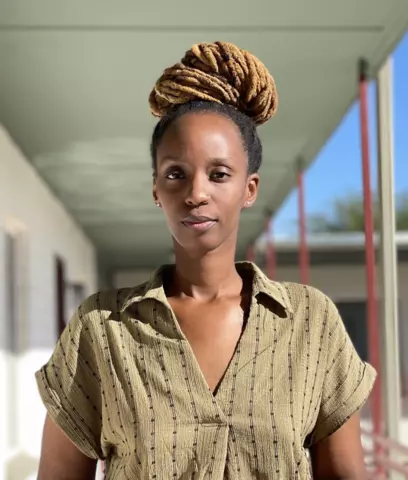Giramata

Giramata is a community organizer, artist, Ph.D. Candidate in the department of Gender and Women Studies & Research Associate for iLGBTSs whose work sits in the fields of Black feminist Studies, Black visual culture, Black girlhood studies and critical trauma studies. Their research interests include the development of Black feminist reading practices that enable scholars to analyze the ways in which time and form is used by Black women artists to offer new meanings of Black girlhood in the afterlife of slavery and colonialism.
Presentations from Facing Race 2022
The arts are not simply a mirror of society. Rather, they are a driving force behind many social transformations. The arts communicate ideology and mobilize people all along the political spectrum. They foster solidarity around shared purposes, values, and identities and provide elements of aesthetic pleasure that can inspire creative responses to fear, oppression, and exploitation. The arts are also tactical interventions in their own right, providing a method for critique and resistance.
How can the arts be married with digital technologies to tell new stories of anti-racism? In this session, the co-presenters ask attendees to experience two new narratives constructed using 360° video cameras. This relatively new technology enables creators to capture an experience and invite audiences into them virtually, almost as bystanders. The two narratives at the heart of this session concern firsthand accounts of racial microaggressions. They demonstrate how new technologies can be a creative, expressive tool for learning about and working through racial microaggressions.
The session offers the opportunity to view the videos with VR headsets. As the videos were the products of a new course, Rehearsals in Anti-racism, the course designer and student creatives share the impetus behind the projects. They discuss the key concepts guiding their creative practice, and invite attendees to participate in a critical dialogue about the promises and perils of racial storytelling, reflection, and learning with new technologies. Special attention is given to how VR can help with healing after a racial event, but also risks retraumatizing visitors to virtual spaces.